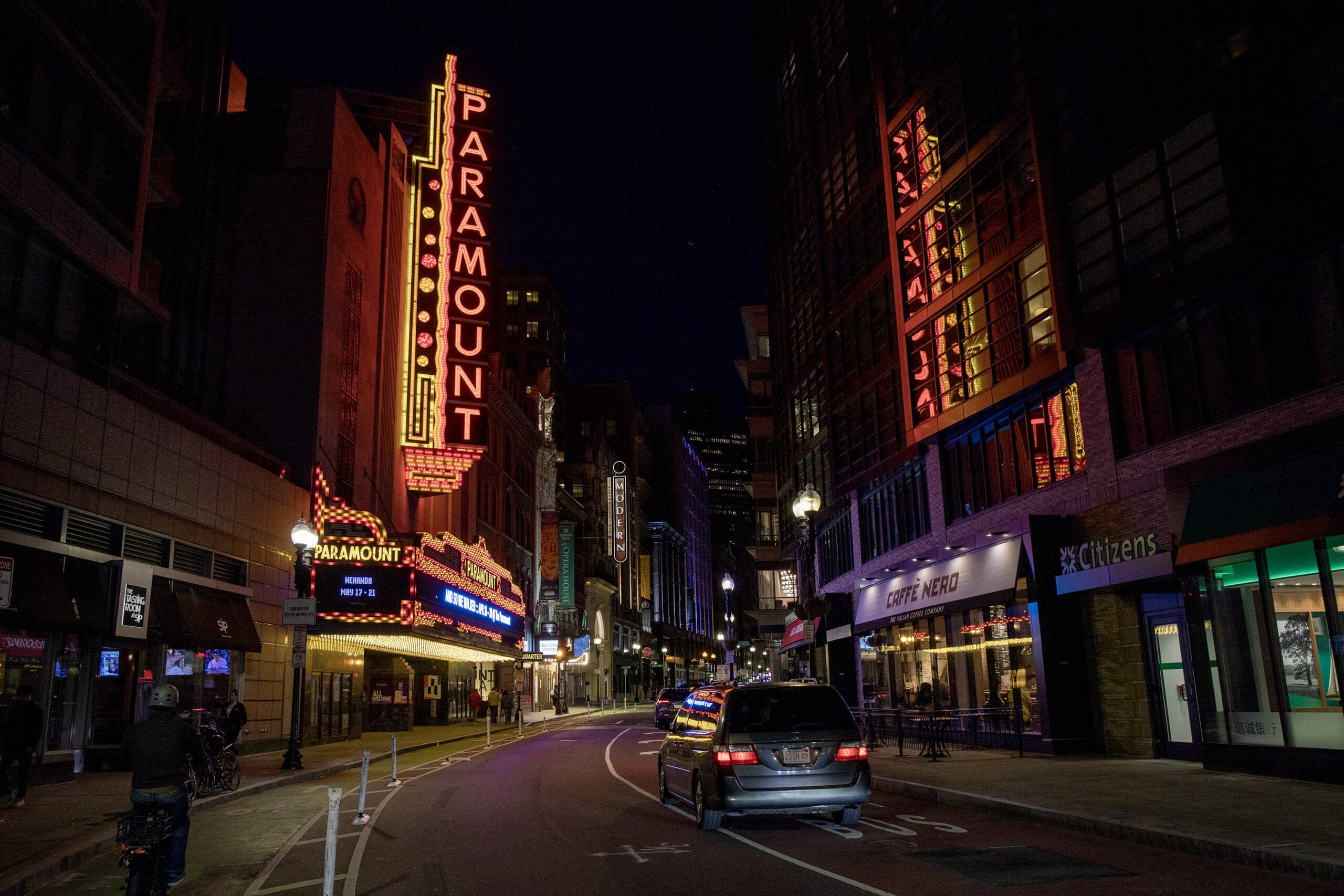
Boston theaters survived COVID. Can they survive what's next?
The pandemic shuttered many industries, but few came to a screeching halt quite so dramatically as live theater.
In the two years following the shutdown, theaters grasped eagerly onto (and in some cases lobbied for) life rafts provided by the federal government: PPP loans, employee retention tax credits and, perhaps most crucially, the live venue operators grant. In greater Boston, these programs proved critical, allowing the vast majority of large and mid-sized theaters to weather the shutdown and cautious reopening phase.
But they emerged onto a changed landscape. Audiences have been slow to return. National conversations about race put the internal practices of local theaters under a microscope. Many theater artists moved away or left the industry entirely.
“The government money's gone. And we continue to have an ongoing challenge in rebuilding the financial model that we all depended on for many years,” said Huntington Theatre Company managing director Michael Maso. “I think that it’s going to take a few years to figure out how to get through to a new normal.”
Nationally and locally, anxiety pervades the industry: when, if ever, will things return to “normal”? And can theaters successfully adapt to any changes that remain permanent?
Responding to changing audience habits
For the Lyric Stage Company of Boston, the thing that needed to go right was “The Play That Goes Wrong.”
In ordinary years, a holiday production of the hit 2012 stage comedy would practically be a guaranteed success. But this was no ordinary year. “The Play That Goes Wrong” was the Lyric’s second production of the 2022-23 season, and to executive director Matt Chapuran, it felt like a test.
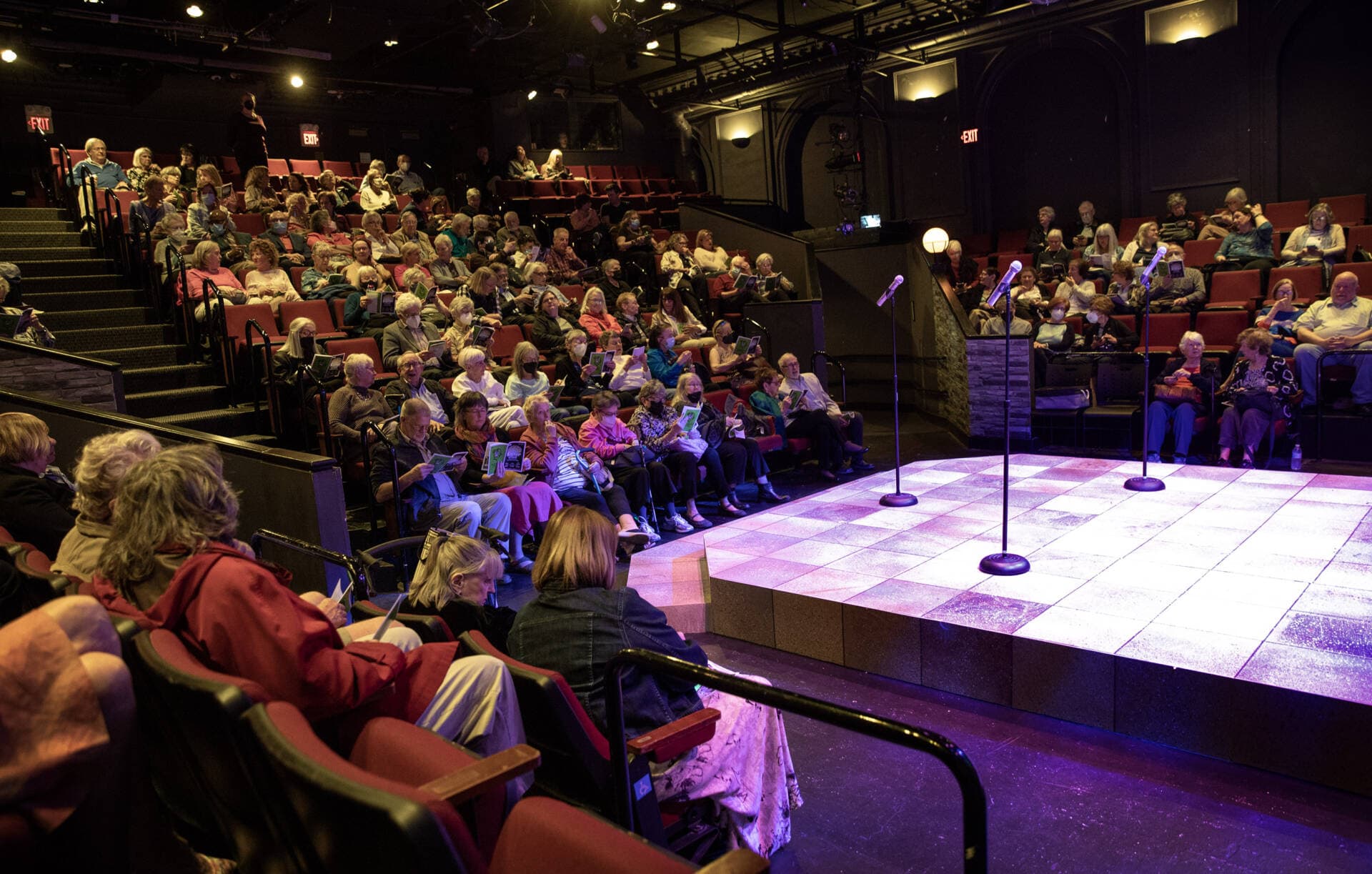
“I remember saying … that December would really be a big moment for us one way or another, because if ‘The Play That Goes Wrong’ dies on the vine, then Courtney [O'Connor], our artistic director, and I were really going to have to go back to the lab and say, ‘The whole model's just gone forever. And so, now what?’” Chapuran recalled.
Luckily, the play was a hit. It sold more than 7,000 tickets during its November-December run, helping to offset the season’s less successful shows and shoring up the Lyric’s finances. Chapuran said the 244-seat theater, which has always operated on slim margins and an approximately $2.2 million budget, is looking at a surplus of about $50,000 this fiscal year.
“Things are better now than they were a year ago," Chapuran said. "So if things are better in a year from now than they are today, then, you know, I think we're gonna be okay.”
Still, the question of whether the old model is gone forever remains up for debate. The Lyric may be in a fine financial position, but its ticket sales haven’t completely bounced back — in 2022, average ticket sales per performance were 23% lower than in a typical pre-pandemic year. And its subscriber base — the stalwart season ticket-holders who once provided a measure of security to the theater — languished in the interim.
Advertisement
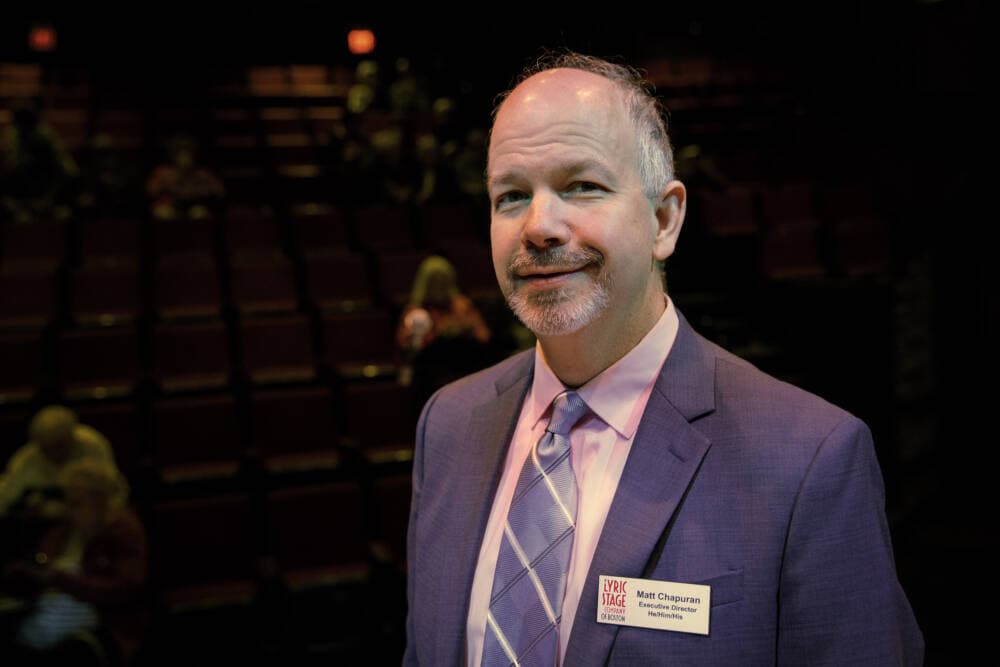
“In a normal year, we would have over 20,000 people who weren’t subscribers coming and seeing shows, and those are the people that you would sell on moving into those ranks [of subscribers],” Chapuran said. “So we [went] a solid two years without that replenishment.”
He predicted that subscriptions for the 2023-24 season, which went on sale in April, would not reach pre-pandemic levels. "We've seen too much attrition between 2020 and now to snap back there that fast," Chapuran said.
Even before the shutdown, nonprofit theaters struggled to attract new audiences to fortify their aging subscriber bases. The pandemic only made the problem worse.
“There was a reduction over time, which was steady and clear,” said the Huntington’s Michael Maso. “This is an enormous acceleration of that process, though.”
Maso estimated the Huntington’s subscription base is about half what it was five years ago. Many of the theater’s subscribers, who tend to be older, are concerned enough about the health risks of live events that they are hesitant to commit to a season subscription.
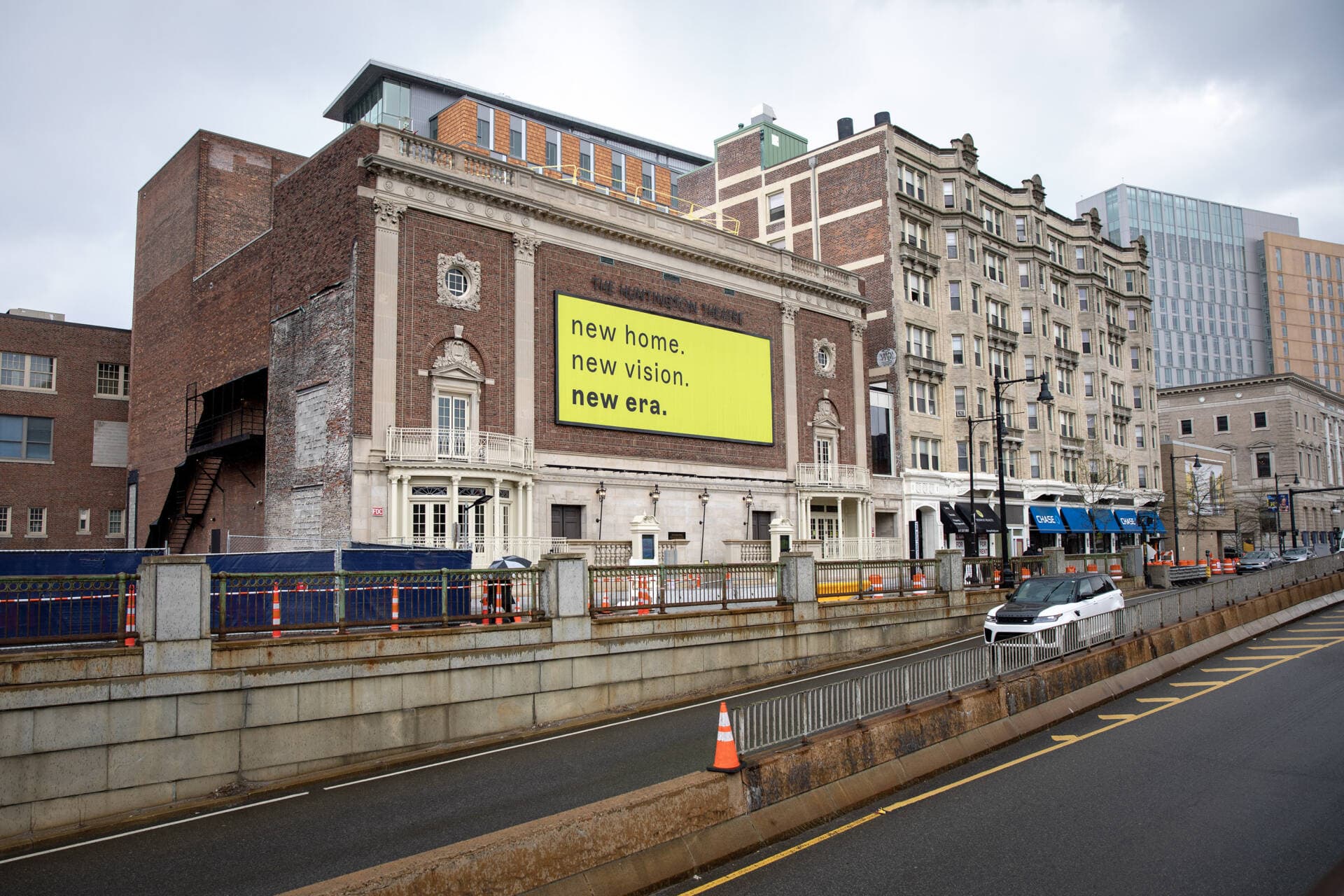
“When those patrons switch from a preseason commitment to multiple plays, and instead start saying, ‘Well, we will come to individual shows, but we don't know when, and we're trying to be responsive to when it's safe to get into the theater,’ it provides an enormous layer of uncertainty to our planning,” Maso said.
Audience habits have changed in other ways. “In general, we’re seeing ticket sales move closer to the date [of the performance],” said ArtsEmerson executive director David Howse.
Last fall, low ticket sales for a two-week run of the popular Washington, D.C. dance troupe Step Afrika! had ArtsEmerson leaders wondering if they should cancel performances. By the end of the run, the show was sold out. “People were calling, ‘Please can I get a ticket? I can’t find a ticket,’” Howse said.
“I think there’s just a slower rhythm,” he continued. “People are still actually understanding what it means to live in this new moment where health continues to be a priority for many of us — for all of us, quite frankly. And so I think the decisions are coming much later.”
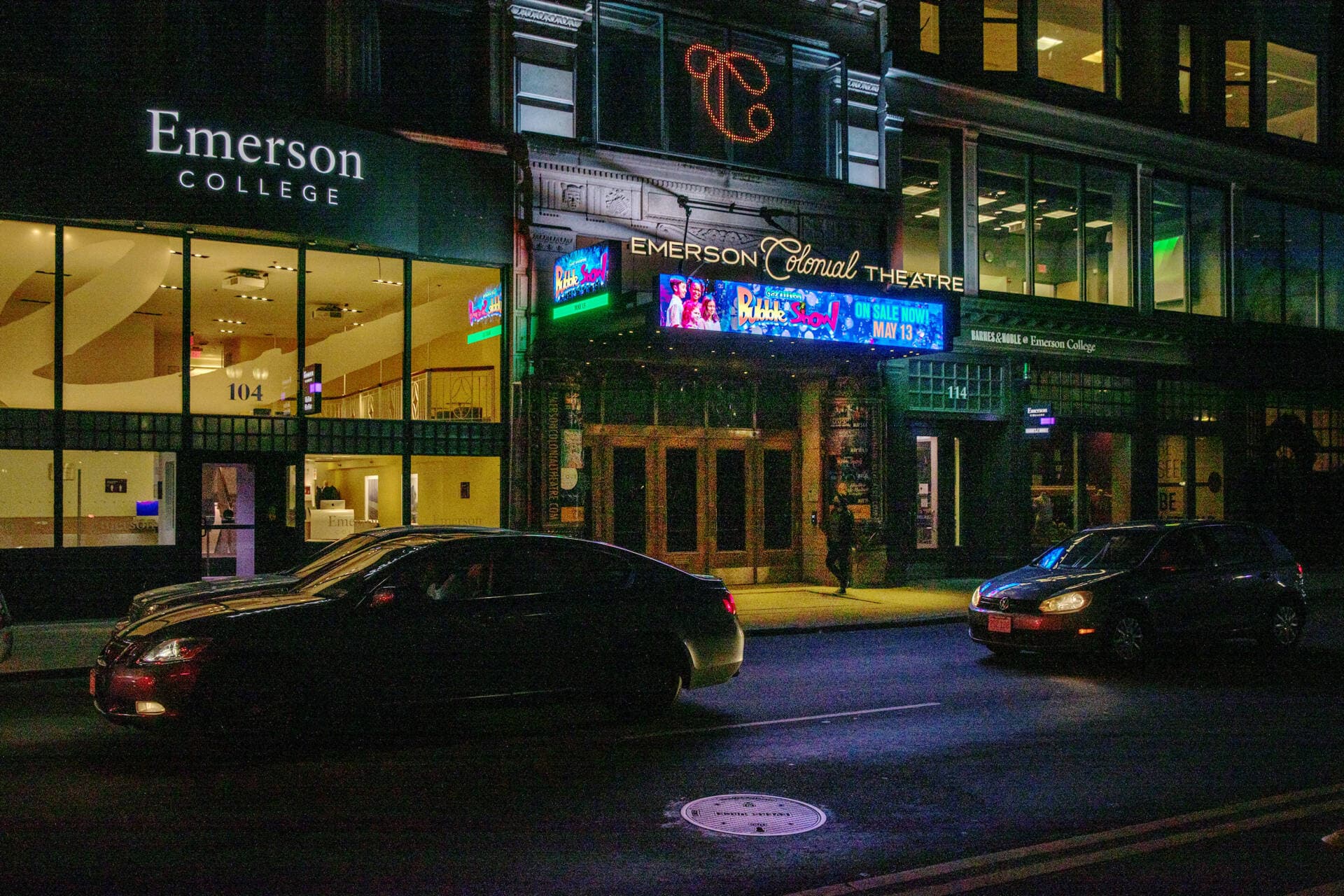
Joey Riddle, the general manager of the Emerson Colonial Theatre, experienced similarly nail-biting moments when tickets failed to sell in advance. The Emerson Colonial Theatre is owned by the international corporation Ambassador Theatre Group and primarily programs national touring theater productions and pre-Broadway shows, along with some comedy and music. Riddle said that popular, proven shows still sell out, even when early ticket sales lag. But audiences seem hesitant to take a chance on something new.
“The biggest takeaway for me has been that the hits are the hits, and then there’s kind of nothing else,” Riddle said.
He’s not sure what that means for the future.
“Everything right now feels like the first time,” Riddle said. “And certainly there's really not a lot of use in looking at anything that happened prior to the pandemic.”
A pipeline problem made worse
Jazzmin Bonner had big plans for Fresh Ink Theatre Company when she joined the organization as managing director five years ago. The Boston-based fringe theater had a mission she believed in: developing new work by New England playwrights. Bonner wanted to grow Fresh Ink and restore Boston’s reputation as a city where the nation’s most exciting new plays are born.
“I think we forget that Boston has these deep roots as an out-of-town tryout place,” Bonner said. “And so how do we sort of bring back this idea of innovation, incubation, the avant-garde.”
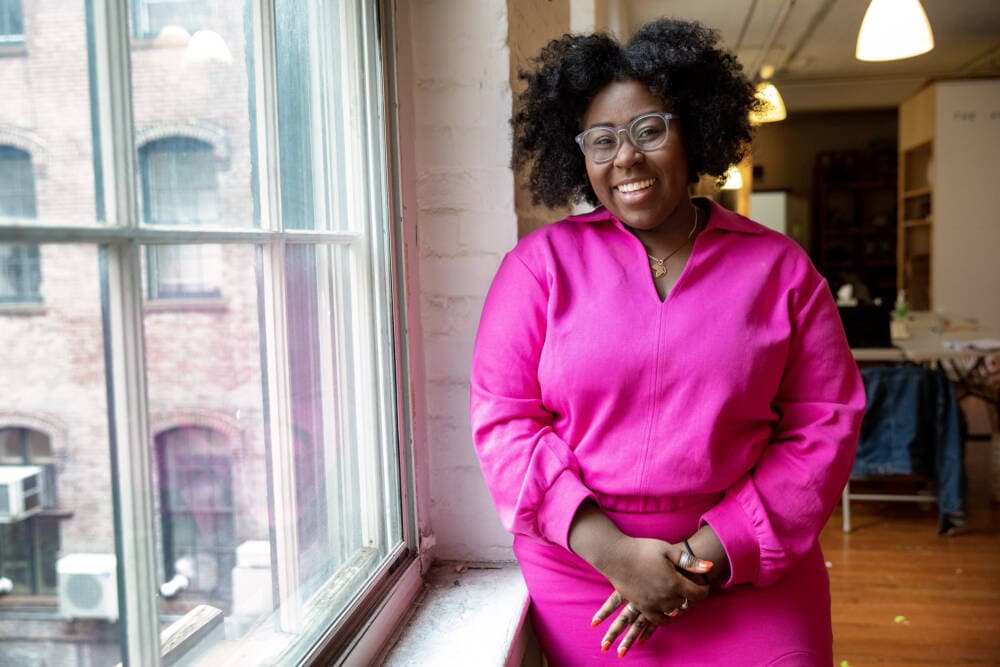
Then came the pandemic. At the time, Fresh Ink was in a relatively secure place compared to other small, volunteer-run theater companies. The Boston Center for the Arts, where Fresh Ink is a theater in residence, gave the organization a break on rent. Fresh Ink had also recently secured a three-year commitment of support from a local charitable trust, which increased its annual $5,000 gift to $10,000.
But the Fresh Ink staff didn’t have the bandwidth or expertise to apply for large federal aid programs. After a couple of years of producing virtual readings, Bonner said, Fresh Ink had burned through its cash reserves.
“Coming out of the most dire parts of the pandemic shutdown, as we're ramping back up into operating in person, there are still some lingering costs … that are making it difficult to get back, to rewire, in terms of financial strength,” Bonner said.
Now Bonner’s goals for Fresh Ink are more modest. The organization, which once workshopped six new plays every year, now workshops only three new plays annually.
Bonner acknowledges that her earlier ambitions have been tempered, but sees upsides in less staff burnout and more time spent with each play.
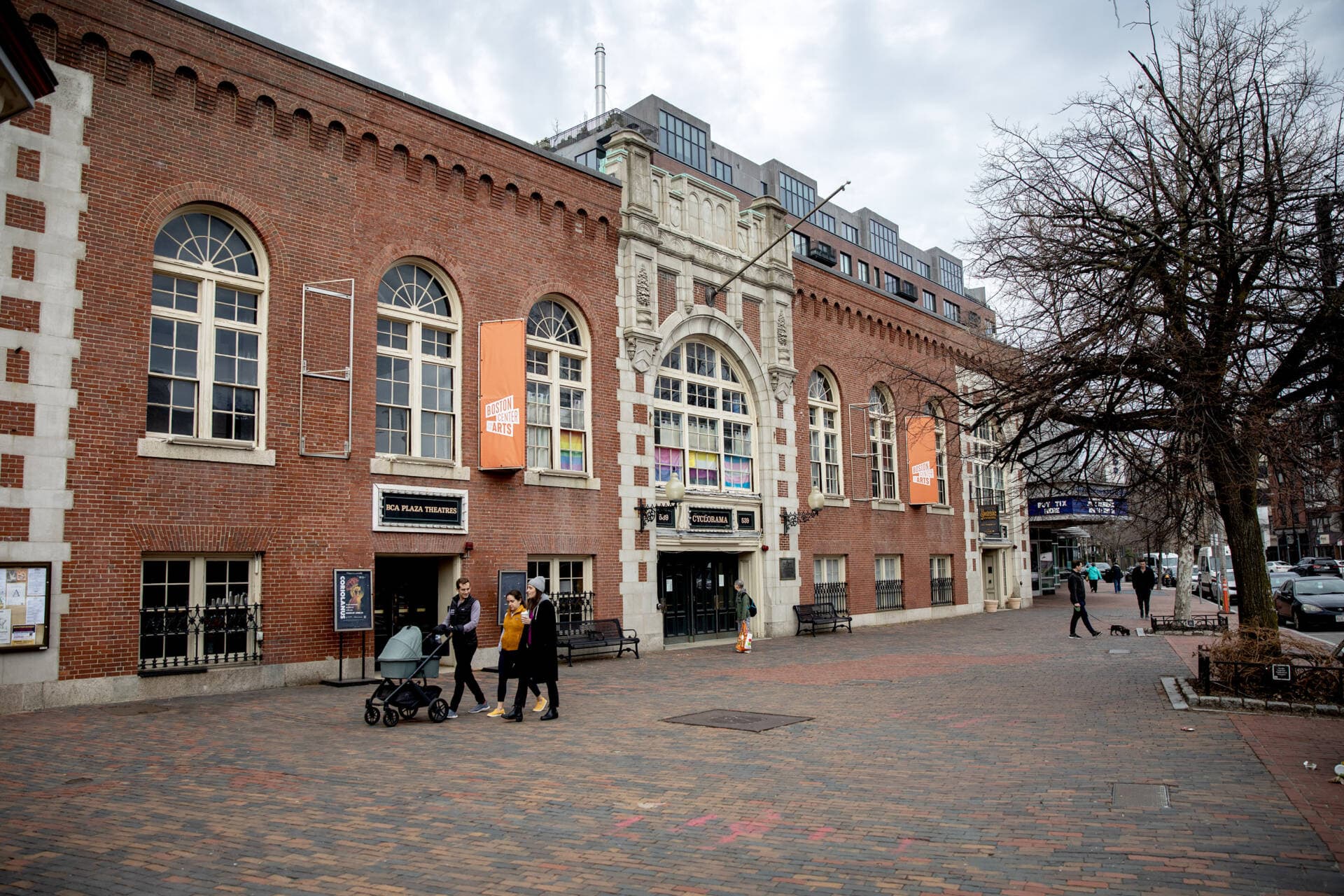
“[We recognized] that the capacities that we were operating at pre-pandemic are not what we have at this moment financially, staff-wise, and really … we learned during the pandemic that spending a little bit more dedicated time with our playwrights allowed us to better serve them,” Bonner said.
Many of the area’s fringe theaters were not so lucky. Some, like Salem’s Third Citizen Theatre Company and Boston’s Sparkhaven Theatre, stopped producing completely. Bonner said that fringe theaters were devastated by the pandemic in a way that larger theaters were not, leaving artists at the beginning of their careers without a pipeline to the big leagues.
"Almost 50% of the people we used to work with are gone."
Jazzmine Bonner, Fresh Ink Theatre Company
“We're the companies, here at the fringe level, that people cut their teeth on,” Bonner said. “They start here and they work their way up. So we're an important part of this ecosystem.”
Hannah Pryfogle, a co-founder of Sparkhaven Theatre, said the company was felled by a combination of Zoom fatigue and an exodus of theater artists from the Boston area.
“I’d love to produce again, but everyone has moved away,” Pryfogle said in an email. “With more folks moving to remote jobs, and no real opportunity in Boston (especially for queer folks and people [in] the BIPOC community), people simply don’t see a reason to stay here.”
The exodus has made hiring a challenge.
“Almost 50% of the people we used to work with are gone,” Bonner said. “They either moved states or they're like, ‘I no longer do this anymore.’”
Investing in a fairer future
In the summer of 2021, Watertown’s New Repertory Theatre lived the nightmare that theater companies the world over had dreaded since the pandemic began. Faced with more than $1 million in losses, the recent departure of its executive director, and no real sense of when live performances might resume, New Rep’s board decided to suspend the theater’s operations indefinitely.
The news was received by the local arts community as an ominous sign: did New Rep’s hiatus signal doom for Boston’s other nonprofit theaters?
But behind the scenes, New Rep’s board was working hard to figure out if, and how, the theater would eventually return. Simultaneously, the Boston theater community was undergoing a racial reckoning following the murder of George Floyd; like many institutions, New Rep revisited its practices around anti-racism and diversity. It also engaged a consultant to look at its finances and held listening sessions with local theater artists.
The personal stories shared in those listening sessions were a wake-up call for New Rep board chair Chris Jones. He realized that the historically white institution needed to do better by both artists and audiences.
“There's so much lip service and talk about equity and diversity across the whole spectrum of organizations,” Jones said.
What would it mean for New Rep to actually walk the walk?
The answer was first to toss out the hierarchical leadership structure. New Rep tapped four theater artists to helm the organization together, and today three remain: Michael Hisamoto, Maria Hendricks and Lois Roach. They share the title of “resident artist” and lead New Rep collaboratively, in close partnership with the board.
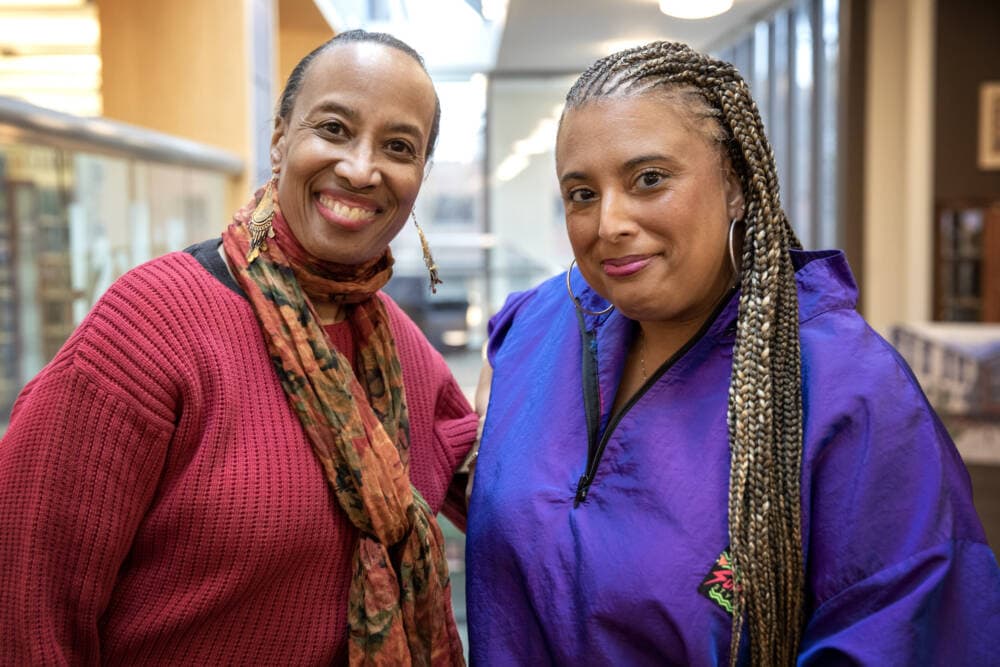
The theater has thrown out the old model of staging five to seven well-known plays and musicals per season, choosing instead to emphasize new work by local playwrights and artists from historically marginalized groups.
Roach put it simply. “We are storytellers hoping to bring forward voices that have not had a traditional pathway,” she said.
The theater also raised its wages, setting a $20/hour minimum for its actors and crew. In the new paradigm, New Rep’s leaders plan to prioritize pay and working conditions over elaborate sets and extravagant productions.
“Normally, if you take a look at a classical theater budget, you'll be looking at maybe $10,000 worth of lumber to build the set. But then if it's a two-person play, they're spending probably about $8,000 on the salaries for the entirety of the production for the actors,” Hisamoto said. “Looking at a spreadsheet like that, seeing actors being paid less than the wood that they're standing on, is not a model that interests me.”
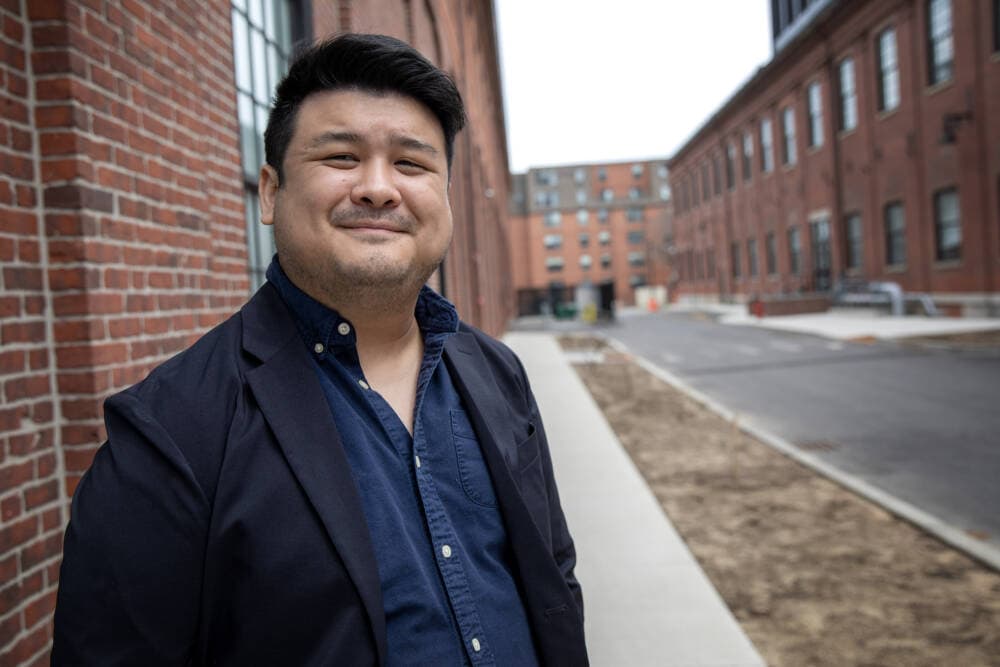
New Rep is not the only Boston-area theater to reexamine its priorities during the pandemic.
Fresh Ink, the fringe theater company that scaled back its operations, decided to reserve one of its three new work residencies for BIPOC (Black, Indigenous, people of color) applicants, and another for LGBTQ+ playwrights.
“[We] identified, like many organizations during the pandemic, that we have all these equitable practices, but … if we didn't work intentionally, we'd produce a season of all white playwrights,” Bonner said. “We get a lot of beautiful stories by white playwrights. But we want to make sure that we're intentionally spreading our ability to support playwrights beyond just that one demographic.”
For the Open Theatre Project, a fringe theater company based in Jamaica Plain, the pandemic was a chance to pause and take stock.
“We decided to break the entire system down, look at all of our bylaws and our governing document[s] and the way we were structured, and rebuild with a … new vision focusing on anti-racism, equity and redefining what community and collaboration really meant,” said Open Theatre Project company member Dustin Bell.
The group dissolved its board and instituted an egalitarian leadership structure. It has since turned its focus to recruiting new members to diversify the majority-white membership, and collaborating with local cultural groups.
"Theater needs to change. It needs to meet the moment."
Danielle Galligan, New Repertory Theatre
In 2020, the Huntington Theatre came under fire from members of its own staff, who said the theater’s planned layoffs and furloughs would disproportionately affect employees of color. Like most area theaters, the Huntington rolled out an anti-racist action plan, which included staff trainings and cultural consultants. But financial pressures could limit its appetite to invest in the problem long term.
“We’ve committed real dollars every year to the social justice and racial reckoning initiatives that we're doing,” Maso said. “But … that budget is not unlimited, any more than any other budget is unlimited. And so we have to really come to terms with that every year and figure out what that means.”
In that regard, New Rep’s undoing may prove advantageous. It is difficult to change an existing institution. But when you’re starting from scratch, possibilities open up.
“We realized it was a gift to be able to take time to try to helm something that would come back in a stronger iteration of itself,” said New Rep board vice-chair Danielle Galligan. “Theater needs to change. It needs to meet the moment.”
What comes next
Boston-area theaters may be forced to change, at least in the short term, if current trends continue.
ArtsBoston, an arts advocacy nonprofit, conducted numerous surveys of audiences and cultural institutions over the course of the pandemic in order to learn what might be in store.
“I think that we're looking at a recovery and rebuilding for the arts here in Boston that's going to last another three to four years,” said ArtsBoston executive director Catherine Peterson.
Theaters surveyed by ArtsBoston noticed the same trends as those interviewed by WBUR: declining subscription sales and the tendency for audiences to buy tickets later.
On top of that, the cost of materials rose, Peterson said. She believes theaters will need to rely more on donations and grants than they have in the past as a result.
"I think that we're looking at a recovery and rebuilding for the arts here in Boston that's going to last another three to four years."
Catherine Peterson, ArtsBoston
“What [theaters are] going to have to do is find a way to ask their supporters for additional contributed support … not only to help them get through with lower sales, but it's going to cost more to acquire new audiences,” Peterson said. “And I think, also, they're going to really need to think about how to be more targeted in reaching out for specific shows and how to use their well-known chestnuts to underwrite the more experimental work.”
Reaching new audiences will be key.
“Everyone wants to go after Gen Z and millennials,” Peterson said. “Absolutely. But you also really want to be going after Gen X, many of whom have entered the empty nest phase.”
Younger audiences seem to have different buying habits, and perhaps different tastes. They are more likely to buy tickets for single performances rather than season tickets — which means theaters need to create buzz around individual productions. Peterson praised the A.R.T.’s December production of “Life of Pi,” which she said came across as “an event, and something you knew you wanted to be part of.”
There may be other ways to harness consistent financial support from younger audiences. Even before the pandemic, Watertown’s New Rep was considering introducing a membership program in order to sustain support from audiences who might not be able to afford subscriptions, or who simply weren’t interested in committing to a full season of shows.
“A membership model, conceptually, is interesting to us because it may allow for a little bit more tiered and accessible pricing and attracting audiences that might not be able to afford a subscription traditionally,” said New Rep's Chris Jones.
Theaters have known for years that they needed to court audiences beyond their aging, predominantly white subscriber bases. In a way, the pandemic simply forced their hands.
“The constant challenge I think every theater faces is, ‘We want younger audiences, we want more diverse audiences,’” said New Rep's Danielle Galligan. “And you can say that till you're blue in the face. But they're not going to just come find you where you've been, doing the same thing over and over and over again.”
This segment aired on May 1, 2023.
